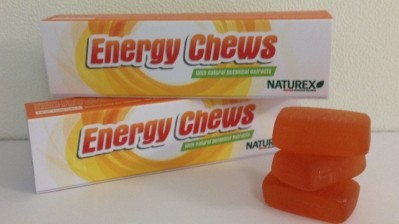Forget doomed sugar battle and prepare for functional future

The industry has prioritized defending sugar against a growing body of evidence linking the ingredient to tooth decay, heart disease and type 2 diabetes.
There is nothing wrong with questioning study design where it is merited, but to cry at every turn that an ingredient or the industry is being unjustly demonized is reminiscent of the car industry’s denial that leaded fuel posed a danger to human health or that cigarettes don’t damage lungs and throats.
And like those products, typical confectionery formulations – high in sugar and with no discernible health benefits – sell in vast quantities. It’s confectionery – why bother with healthy premises at all?
Limiting the risk
Confectionery firms may say ’It’s too risky to invest heavily in fortified confectionery. The ingredients are expensive and interfere with the indulgent taste of our products.’
Confectioners have just cause to hold this view. After all functional confectionery is still very much a niche. Functional chocolate confectionery sales in Western Europe reached $78m in 2013, representing around 0.2% of total chocolate sales, according to Euromonitor International.
But the sector has yet to be given a fair crack at the whip.
If money spent defending the status quo were invested in researching products that contribute to public health, and promoting functional confections among consumers, companies could conceivably turn profits without waging expensive campaigns defending their products. Functional confectionery need not be an expensive niche.
Who says functional confectionery can’t turn a healthy profit?
Prepare for the regulatory hurricane
The connections between high sugar consumption and negative health effects will soon hit the fan.
National government and transnational institutions such as the EU and the World Health Organization (WHO) will increase regulation on unhealthy ingredients as the drain on the public purse from health care costs become unsupportable.
Debra Sandler, president of Mars Chocolate North America said at the National Confectioners’ conference last year said that, “It’s no longer acceptable for us to duck-out,” declaring that the industry must step up on obesity before regulators bite.
Well, regulators have already begun to open their jaws. Mexico has introduced a tax on foods high in saturated fat, sugar and salt that Hershey said last week had harmed its first quarter sales in Latin America. The WHO is also considering halving its recommended daily sugar intake.
The industry response thus far has been to lobby against regulations and distance itself from added sugars. It is true, as the industry argues, that confectionery only accounts for 6% of added sugars in the American diet.
Making concessions
But behind the veneer the industry has begun to make concessions by downsizing products and promoting eating confections in moderation. For instance, Mondelēz International has committed to cutting saturated fat and sodium 10% by 2020, while Mars has reduced portion sizes of its Mars bar to meet calorie reduction pledges.
Companies that go further and start to create indulgent confections that deliver positive health benefits – through phytosterols, omega-3s or high flavanol content – may have a more sustainable future.
Some companies are taking these strides. Barry Callebaut invested to win an EU health claim for cocoa flavanols; Mars is conducting large-scale research on cocoa flavanols (albeit for nutritional supplements), while smaller companies such as Sulá and Cavalier have created indulgent confections with sugar alternatives. Others such as US firm Good Cacoa are pairing chocolate with functional ingredients.
If the money spent fighting a seemingly doomed battle over sugar’s dietary worth was invested in R&D to further leverage cocoa flavanols science, to explore the possibilities of functional ingredients and fine tune the flavor profiles of alternatives sweeteners – and frankly make them cheaper – confectionery companies could make a difference to public health and still turn a profit - guilt-free.





















